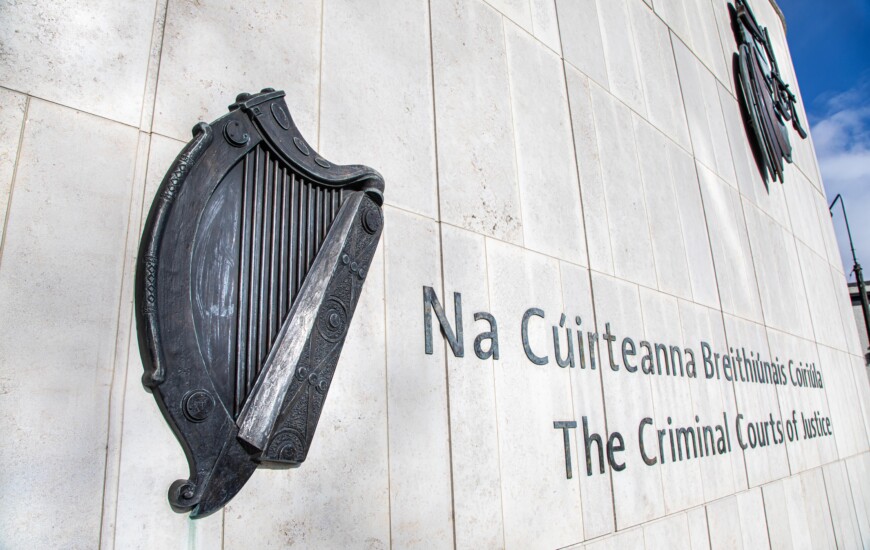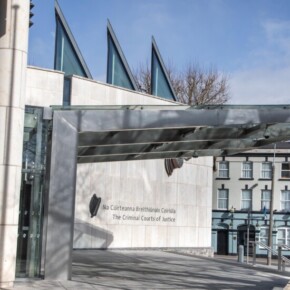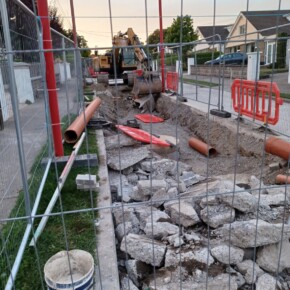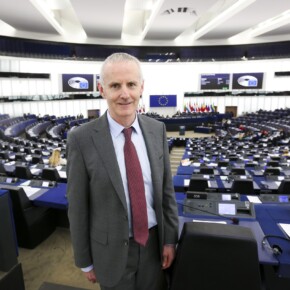Accused had access to telephone when alleged bomb threat made
Dublin People 04 Mar 2024
By David O’Sullivan
A man who allegedly made a call claiming explosives had been planted in the Minister of Justice’s house was alone in his cell with access to a telephone when the call was made using a unique number associated with him, a jury has heard.
Michael Murray (52), formerly of Seafield Road, Killiney, Dublin, has pleaded not guilty to one count of knowingly making a false report giving rise to an apprehension for the safety of someone else while he was imprisoned in the Midlands Prison, Portlaoise on March 7, 2021.
The jury has heard that an anonymous caller claiming to be from the Irish National Liberation Organisation rang the Samaritans saying explosives had been planted at the home of the Minister of Justice, Helen McEntee.
No explosives were found, but the call was traced to the Midlands Prison.
The person who made the call used a unique identification number registered to Mr Murray.
Patrick McCabe, who was the assistant chief officer at Midlands Prison at the time the call was made, told Sean Gillane SC, prosecuting, that he was in charge of the prison overnight and that staff would report to him.
He said at the time the call was made, prisoners were locked in to their cells for the night.
All cells had phones inside.
Mr McGabe also told the court that Mr Murray was the sole occupant of his cell when the call was made and that his cell wouldn’t have been opened until the following day.
He told Mr Gillane that “all cells would be master-locked,” meaning other prisoners would not have access to other cells.
“So did you put him to bed and tuck him in?” Garett Baker SC, defending, asked in cross examination.
Mr McGabe told Mr Baker he had not, and that he had no memory of Mr Murray being personally brought to his cell.
The court also heard from Detective Garda Shane Curran last Friday, who had been tasked with identifying the phone call which had contacted the Samaritans.
He said he received information from a network provider that the call made to the Samaritans on March 7, 2021 came from the Midlands Prison.
Dt Gda Curran contacted the prison and made a request to establish who had phoned the Samaritans at the particular date and time of the bomb threat.
He said he received information that the phone call was made using a unique identification number belonging to Mr Murray.
Prisoners needed to use this number in order to make calls, the court heard.
In cross examination, Dt Gda Curran told Mr Baker that it was not possible to tell from where within the prison the call was made.
He agreed with Mr Baker that if there were irregularities or issues within the phone prison system, he would have expected to be made aware of the issue.
He also said that he hadn’t physically been to the Samaritans centre where the call was received, nor did he go to their headquarters in Dublin.
As far as he was aware, no garda had done so, he said.
Cross-examination of Noel Reilly, who worked in the IT department of the Irish Prison Service at the time of the call, also continued last Friday.
Mr Baker put it to Mr Reilly that he had not informed gardai of the ongoing issue in the prison phone system which allowed prisoners to call their solicitors when they should not have been able to do so.
Mr Reilly said he “genuinely forgot” to mention the issue and “didn’t mean to mislead.”
He said he understood Dt Gda Curran was looking for background information on how the prison phone system worked, and that the issue wasn’t relevant to his investigation.
In re-examination, the court heard Mr Reilly ran another report for outgoing calls using Mr Murray’s unique identification number to the Samaritans during March.
The first call had been on the March 7, at the time the bomb threat was made, the court hear.
There wasn’t another call to the Samaritans from that number until March 20, the jury was told.
At this point, there were 24 outgoing calls to the Samaritans within a four day period.
The court heard one of these calls lasted for a minute, while the rest were “for a small amount of seconds.”
As far as Mr Reilly was aware, no consideration was given to shutting down Mr Murray’s access to the phone system after he became a suspect in the alleged offence, the court heard.
The trial continues before Judge Patricia Ryan and a jury.











